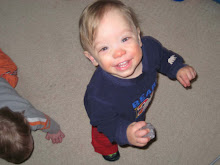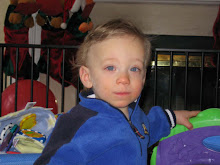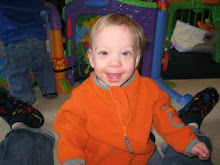 This is Esme Kennedy. She was a seventh grader at our School for Creative and Performing Arts. She double "majored" in vocal and instrumental music.
This is Esme Kennedy. She was a seventh grader at our School for Creative and Performing Arts. She double "majored" in vocal and instrumental music.On Saturday the 7th, she went out for a jog and never came home. Her body was found about a mile from her home early Sunday morning -- she had been strangled, sexually abused, and then her body had been burned.
Thankfully they caught the (insert choice of name here). Ends up he has already been to jail for 17 years for killing a woman and burning her body -- plus they now suspect him in two other deaths of teenage girls who were killed in the same manner as Esme.
I know this is rare -- approximately one child abduction-murder for every 10,000 reports of a missing child. But the World Health Organization last year published statistics indicating that while adult murders are declining, the number of child killings is up more than 58 percent.
58 percent.
Many of you will recall that I serve on the Incident Management Team for my school district; therefore, I am working closely with the Crisis Response and Bereavement Team from my district during this time.
I asked our Lead Psychiatrist the questions every parent was thinking: Why? Who? How? What can I do to make sure it never happens to my child or any other child again?
Here were his answers:
Who? ... The majority of the killers have committed prior crimes against children, the most common being sexual assaults.
The typical victims are girls in their tweens often described as "normal kids" from middle-class neighborhoods with stable family relationships.
How? ... The killer had a legitimate reason to be at the site where they first contacted their child victims. They lived or worked near the site.
Most of the victims are victims of opportunity -- "snatch and grab"; rarely does the killer choose his victim because of some physical characteristic.
Usually, the initial contact between the victim and the killer took place within a 1/4 of a mile the victim's home, and usually the first contact occurred less than 200 feet from the victim's home.
(And this fact makes me makes nauseous) About 10% of killers volunteer to help police search for the missing child.
What can I do? ...
- The most important thing parents can do is to be certain that their children are supervised, even if they are in their own front yard.
- Children are often told, "Don't speak to strangers" and "Don't get into cars with strangers." That advice should be carried one step further. Children should be told, "Don't even approach a car, whether the person is a stranger or not." Children should be told to turn around and run to a safe place if someone offers them a ride, asks for directions/help finding their lost puppy, or offers treats.
- We as adults need to be aware of strangers and unusual behavior in the neighborhood. Many child abductions are witnessed by people who do not realize that a crime is being committed. For example, when someone observes an adult struggling with child in a public place, many think it is a guardian taking control of an unruly child (see my post from Tuesday). In many cases, that is what it is. However, noting descriptions and license numbers is a good idea.
- Finally, if a child is unaccounted for, the police should be notified immediately.
I don't think anyone can give me a good answer why.











4 comments:
Oh my gosh - that is horrible! What was this jerk doing out of prison anyway? Our prison system needs an overhaul.
Thanks for this Jessica. I plan on sharing it with Chloe & Kyra. Since Chloe has turned 7 she seems to think she's old enough to go by herself in places like the grocery store, or to a restroom at a restaurant... call me paranoid but if I can't see her she's in danger! Needless to say she doesn't get her way on this request, ever.
I'm so sad to hear about the beautiful and talented Esme...what a great tragedy! Thanks also for all of the other information. You can never be too careful!
that's so, so tragic :(
Post a Comment